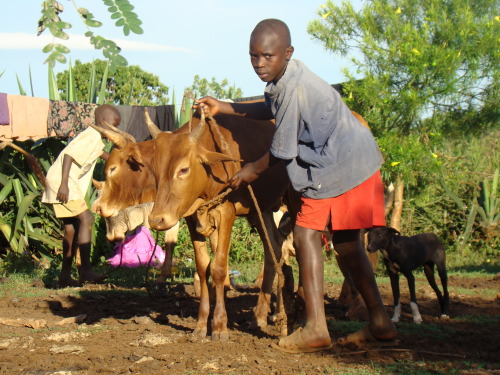The ESRC STEPS Centre has begun work on a major, international research project exploring the factors that drive animal-to-human (‘zoonotic’) disease transmission in Tanzania, with the aim of informing new strategies for disease control and elimination.
Anthropologist Dr. Linda Waldman, a member of the STEPS Centre, will be undertaking the social science element, including participatory research, of Social, Economic and Environmental Drivers of Zoonoses in Tanzania (SEEDZ), a four-year interdisciplinary project funded under the Zoonoses and Emerging Livestock Systems (ZELS) programme.
It is the latest in a growing portfolio of work within the STEPS Centre exploring zoonoses – diseases that can pass from animals to humans. Dr Waldman already contributes to the Ghana case study in the Dynamic Drivers of Disease in Africa, a STEPS-led consortium considering the relationships between disease, ecosystems and poverty in five African countries.
Livestock diseases
Zoonoses are of increasing interest to researchers, policy makers, public health experts and others as more than 60% of emerging infectious diseases affecting people have their origins in wildlife and livestock, including Ebola.
SEEDZ is considering the drivers, risks and impacts of the zoonotic diseases brucellosis, Q fever and Rift Valley fever. All affect cattle, sheep and goats, causing livestock production losses and impacting upon the livelihoods of the people who depend on them. They can also cause severe illness in people – and sometimes chronic disability and death – further impacting upon people’s development prospects and adding to their poverty.
At present these diseases are estimated to cause substantial economic losses for Tanzania, as well as adding a significant burden of human misery to its population. However, the true impact remains unknown as the diseases are difficult to diagnose. In people, all cause fever and they are often misdiagnosed as malaria.
One Health approach
The SEEDZ team, from Tanzania, the UK, US and New Zealand, includes animal and human health experts, anthropologists, geographers and economists, exemplifying its ‘One Health’ approach to zoonoses. The premise of One Health is that the health of people, animals and the environment are inter-related – and the approach emphasises the importance of a collaborative and interdisciplinary approach to research, as well as an integrated and inter-sectoral approach to disease management.
Tanzania is currently experiencing many major transformations, including rapid urbanisation, intensification of livestock production systems and land-use shifts. The consequences of these changes on livestock-keeping practices and zoonotic disease risk are unknown at present.
SEEDZ researchers will explore how these changes affect urban, peri-urban and pastoral communities to determine how the changes affect people according to their differing livestock-keeping practices and connections to an urban centre. More than half of Africa’s people are expected to live in cities by 2015 so although the lessons of this research will have primary significance for Tanzania they will also be relevant to other countries and regions.
Different perspectives
The study will in particular emphasise interactions with farmers, consumers and policymakers to gain a broad understanding of different perspectives. By integrating the quantitative and qualitative elements of the research, the aim is to produce models that can help predict changes in disease risks as well as inform any policy shifts and institutional changes that could help to reduce the burden of these zoonotic diseases.
It is being led by researchers at the University of Glasgow. Partners in Tanzania include the Nelson Mandela African Institution of Science and Technology, the Kilimanjaro Christian Medical Centre (KCMC)-Kilimanjaro Clinical Research Institute (KCRI), Sokoine University of Agriculture, Tanzania Wildlife Research Institute (TAWIRI), the National Institute for Medical Research (NIMR), Tanzania and the Ministry of Livestock and Fisheries Development. Other partners include the Food and Agriculture Organization (FAO), University of Otago, and Washington State University.
An inception workshop for the project was held in Arusha, Tanzania, last month, opened by the Tanzania Minister for Livestock and Fisheries Development, Dr Titus Kamani.
SEEDZ is one of 11 programmes funded under ZELS a £20.5 million joint research initiative between the UK’s Biotechnology and Biological Sciences Research Council (BBSRC), Defence Science and Technology Laboratory (DSTL), Department for International Development (DFID), Economic and Social Sciences Research Council (ESRC), Medical Research Council (MRC) and Natural Environment Research Council (NERC).
